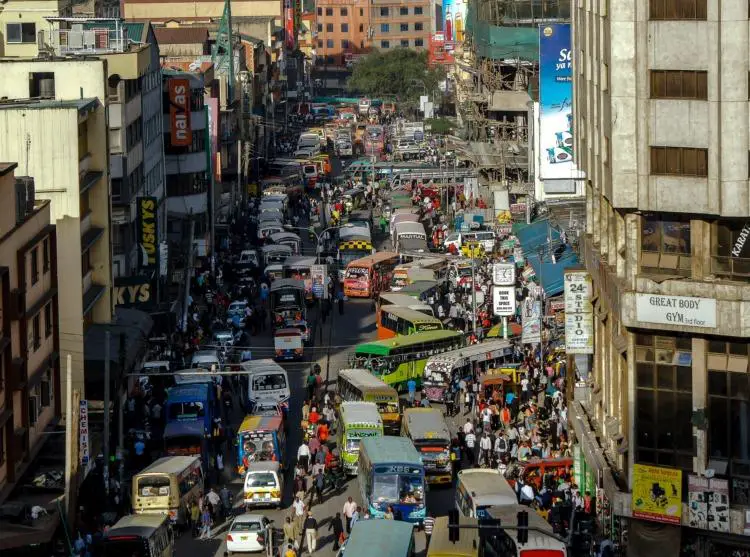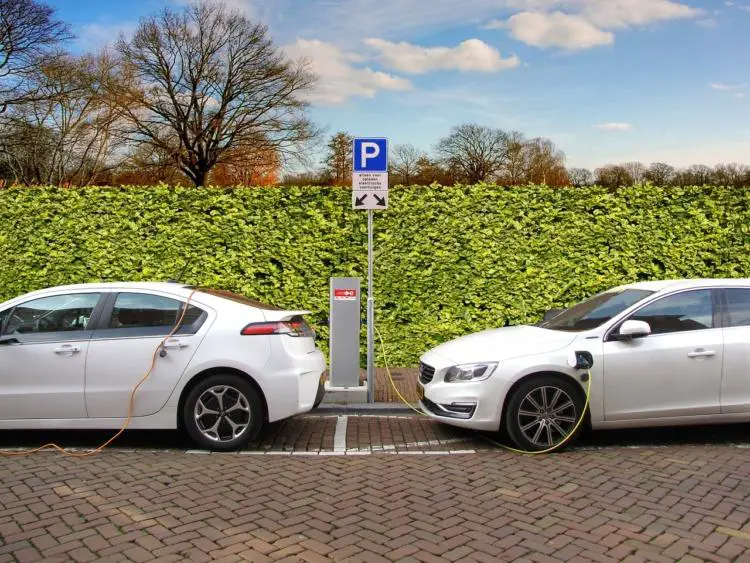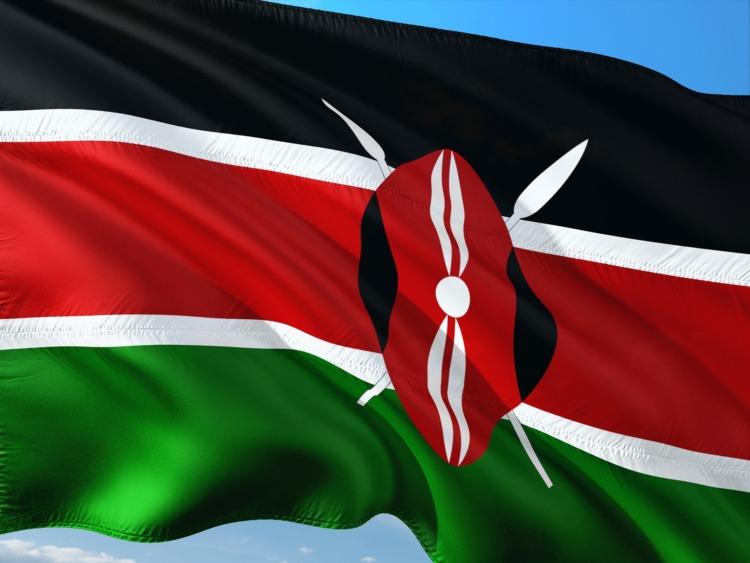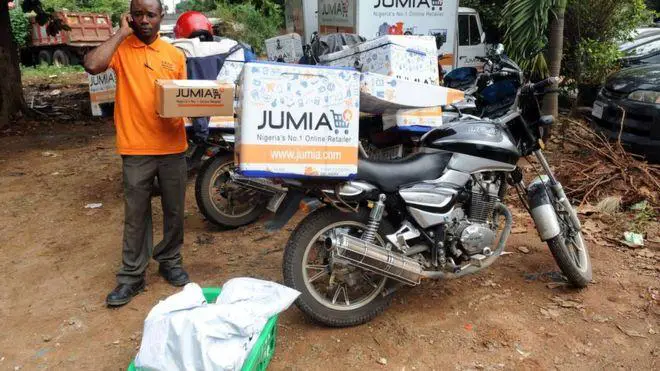- Africa’s new dawn: the rising role of digital and AI in agriculture
- Can Dangote Refinery Transform Africa Energy Ambition
- Gallup Survey: 80 per cent of Kenyan Workers Are Disengaged and Seek New Opportunities
- Madagascar Man Freed from 5KG Tumor After 15-Year Struggle
- How women in Africa are perceived and treated
- Sugar consumption in Kenya to Increase to 1.23 Million Tonnes
- Can Somalia and Turkey Oil deal Bring Change in Somaliland
- Remittances to Kenya dropped to $371.6 million in June, marking a six month low
Author: Evelyn Shumba
Evelyn is a finance and business content writer with a passion for business news in Africa. Her expertise is in analyzing African equities and telling the truth when it comes to doing business on the continent!
Kenya is commonly considered to be East Africa’s financial hub. Its economic growth has increased steadily in the last decade due to significant political, structural and economic reforms. The SME sector stands out as the key driver of Kenya Vision 2030 which seeks to transform the country into a newly industrialized middle income country by 2030. SMEs are crucial in encouraging industrialization and helping to eradicate poverty by creating employment and raising income levels.
Social and Economic Benefits
SMEs complement large firms as subsidiary units; because they are more flexible they can effectively meet the needs of the market. They have a facilitative role in entrepreneurial activities across the country in both urban and rural settings, thus contributing immensely towards the socio-economic development and transformation of the country. SMEs are can ensure the achievement of sustainable development goals (SDGs), promotion of inclusive economic growth and sustainable industrialisation and fostering as …
The African continent has been portrayed in most literature as the “Dark Continent”, with not many expectations from it. This degrading view is slowly fading from the trending news globally, as the continent continues to headline great achievements.
There has not been a shortage of millionaires as well, with new six-figure worth individuals being added each year impacting the socio-economic outlook on the continent. …
Necessity has called for innovations and radical changes across the globe. Amid concerns over greenhouse gas emissions, policy frameworks have been formulated to pave the way for a greener approach to doing business. Traditional business models are fast being replaced by new technologies and environmentally friendly models.
The manufacture of internal combustion engines is facing great pressure to being phased out, which in many European countries have already been implemented. Regardless of the transition chaos, Africa is far from embracing the new wave of electric vehicles. Despite the challenges the continent faces towards a carbon-neutral automobile industry, electric cars have the potential to make it on the continent. …
An educational approach especially one that combines study in key areas like Science, Technology, Engineering and Mathematics (STEM) is critical to achieving lasting change in the continent.
An educational-based development model is a revolutionary tool in the economic sector as it fosters innovation, problem solving and creativity in real-life situations.
The approach has been adopted in most countries globally, as well as in the African continent. It has a significant impact on society, the economy and the way people relate to the natural environment.…
The African continent has been endowed with about 30 per cent of the world’s total mineral reserves with over 60 different types of minerals. If more geological surveys are conducted systematically there is potential to discover even more extensive tracts of mineral deposits.
Minerals are vital inputs in the production of a broad range of consumer goods, infrastructure and agricultural materials and they are also used in making transport, communication and energy applications. Minerals are a necessity in the industrialisation of many nations across the globe.…
At the turn of the millennium, the Rwandan government purposed what became known as Vision 2020. The government’s goal in implementing this policy was to move from an agricultural-based economy to a digitized and middle-income society by the year 2020. Having made this bold assertion, the government facilitated the linking of the country to global wireless networks. With increased connectivity, Rwanda’s tech revolution began.
To date, mobile phones are very popular in the country, with connectivity available in rural areas. In asserting its commitment to the provision of ICT tools and programs, the Rwandan 500 franc note is embossed with a picture of young children working on laptops. ICT gadgets are also available for purchase on credit facilities, with smaller tech companies partnering with leaders in the industry to avail such options to the consumer. …
For the longest time, Africa has been regarded as a hub of extraction, with a history of colonialism that resulted in colonialists exporting raw materials and labor from the continent at little or no fee at all. However, Africa is rewriting the pages of history, and taking charge of its economic well-being.
No longer are African leaders basing their economies solely on the extractive industries, they are spreading their wings to different sectors that will benefit the continent’s economic status. To date, Africa has been said to be the second-fastest-growing economic region after Asia, and forecasts predict the momentum to be maintained as the continent has many factors working in its favor.
Although the continent’s economic status is on the rise, the rate at which different countries on the continent are growing economically is not at par. One country that has seen remarkable growth and is implementing economic policies that …
According to Brand Africa 100: Africa’s Best Brands 2020 survey, Africans prefer foreign brands over local ones. In 2011, the representation of African brands seemed very optimistic when they registered a 34% representation, but in 2020 it dropped to an all-time low of 13%.
< p class="fade">This is a worrying statistic as it may indicate that Africa is failing to meet the needs of its growing consumer market, which was worth $1.4 trillion in 2020. The AfCFTA if properly implemented will create an even bigger continental free trade zone with a potential market of 1.7 billion people. …
In 2013, Rio Tinto had to write down its Mozambican assets by US$3 billion as a result of failure to transport its coal to port for export. The company had invested huge sums of money based on assumptions of vast coking coal reserves that it would export. Upon the insurgence of extremist rebel groups, with escalating violent activities, the rail network was disrupted and there were increased security risks for normal operations to continue.
The company suffered great loss as it failed to recoup its capital outlay and eventually failed to continue its operations. The high-security risks at a time when investment capital is yet to be recouped, have the potential to turn away more foreign capital injections in the gas-rich country. …
A survey conducted in 34 African countries between 2016 and 2018 shows that people are chiefly concerned about the future of work, be it job availability, quality, or growth. The gig economy is essential for the people of Africa because of its ability to provide a source of income to the inexperienced and unemployed majority. Formal jobs are only available to a few, while most people work in the informal sector as subsistence farmers, vendors, small-scale traders and numerous other roles.
Africa has a growing youth population that will need to be absorbed into the productive sector. An estimated 122 million new entrants are expected to join the labour market in the next two years, and it is impossible for an equal number of formal jobs to be created for these people.
…













